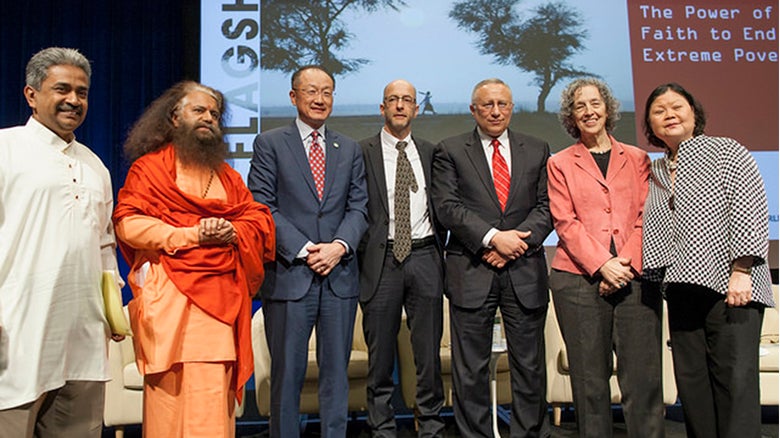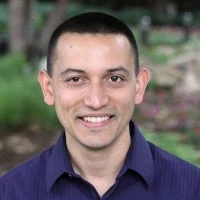
World Bank Group President Jim Yong Kim will deliver a keynote address, “The Principle of Mercy,” at Union Theological Seminary in New York tomorrow night. The event is co-organized with the Jewish Theological Seminary and Riverside Church and will be livestreamed.
At first glance, a seminary may seem like an unusual venue for a speech by a World Bank Group president. However, Kim’s speech fits into the broader context of the Bank Group’s revitalized engagement with faith-based and religious organizations over the past two years. He will share how faith communities have impacted his own journey and describe how the Catholic commitment to an “option for the poor” has served as an anchor and guiding ethic in his career — from his work at Partners in Health to his term as director of the World Health Organization’s HIV/AIDS department, to his present leadership of the World Bank Group.
An option for the poor is a cornerstone of Catholic social teaching and a central tenet that liberation theologians have expounded upon, including Jon Sobrino, an El Salvadoran priest whose book inspired the title of Kim’s speech. The major religions of the world share a common concern for the poor and the obligation to protect the vulnerable. Examples include the notion of Tikkun Olam within Judaism to repair the world from injustice, and the pillar of Zakat within Islam.
The World Bank Group’s goals to end extreme poverty and boost shared prosperity are aligned with these basic principles. In recognition of this common ground, the Bank convened a diverse group of faith-based organization and religious leaders last year. These leaders drafted and launched a statement and initiative, “Ending Extreme Poverty: A Moral and Spiritual Imperative,” just before the 2015 World Bank-IMF Spring Meetings. Faith-based organizations and religious partners also worked alongside the Bank and the United Nations on a faith-based action framework to end extreme poverty and realize the Sustainable Development Goals, launched in September just before the UN General Assembly.
While the relationship between the religious and development community has sometimes been strained in the past, great strides have been made to foster both dialogue and cooperation in ways that can improve development outcomes. Over the past decade, many UN agencies and bilateral donors have developed their own sets of principles and guidelines to strengthen and enhance engagement with religious actors.
Most recently, in February the German government launched a new strategy, “Religious communities as partners for development cooperation” at a major conference that explored how to build more effective cooperation to advance sustainable development. Prior to the conference, the World Bank helped to co-launch a new multi-donor coordination mechanism called the International Partnership on Religion and Development.
The Bank Group is and must remain a secular and non-sectarian institution that is guided by the best evidence and knowledge. However, our mission and goals can’t be achieved without partnering more effectively with actors across civil society, including faith-inspired ones. Low- and middle-income countries across the world are becoming more religious, not less, and for over 80% of the world’s population, religion significantly shapes their world view, values and behavior. While the misuse and abuse of religion can be a barrier to development, religious actors have been engaged in positive ways across every facet of development, from providing relief in times of crisis to caring for the sick and delivering essential social services.
In November, Pope Francis declared a Jubilee Year of Mercy, until Nov. 20, 2016. While this declaration has profound meaning for Catholics, all people of faith and conscience can find inspiration in this call to exhibit mercy both in word and action. As our world confronts the alarming crises of refugees, climate change, violence and conflict (which all threaten to derail progress in ending extreme poverty), mercy can enable us to further identify with the suffering of others and to act in solidarity.


Join the Conversation